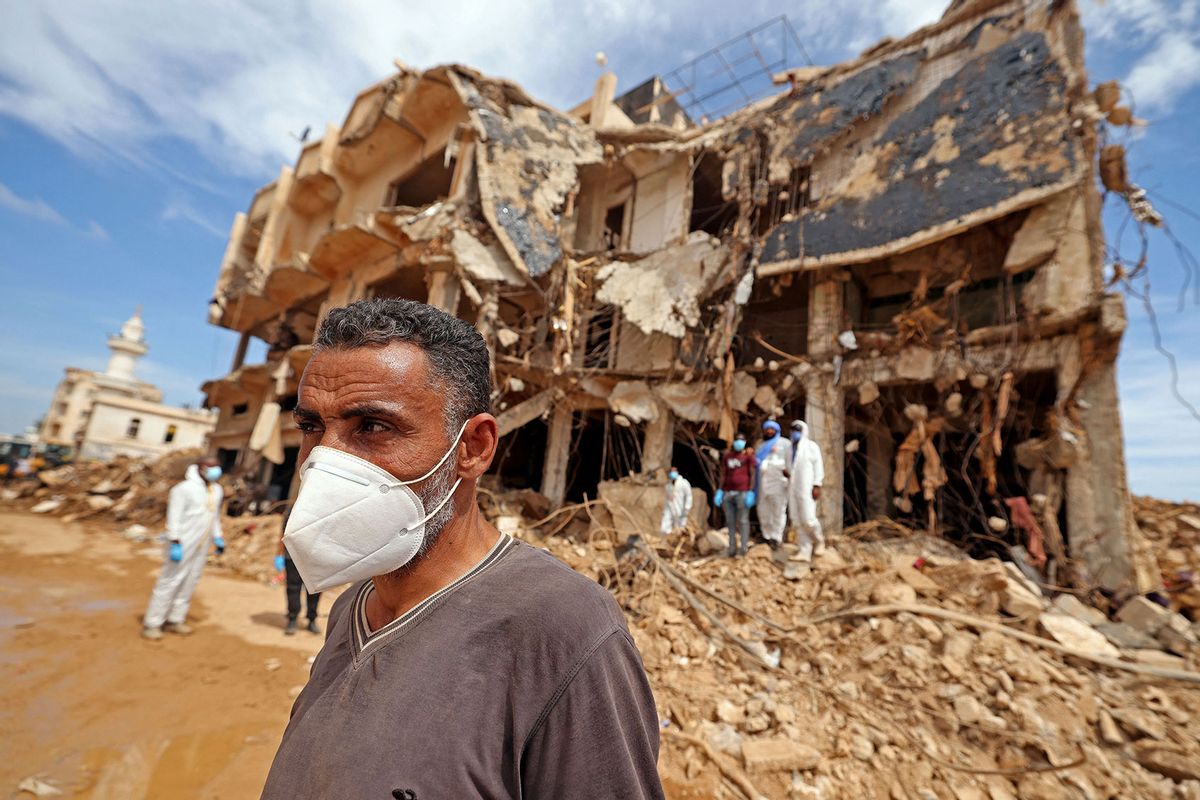When two dams in the Libyan city of Derna failed last week, the result was a flood that has claimed more than 11,000 lives, with thousands of people still missing. Because there were ample advance warnings that the dams needed to be repaired, much blame has been placed on the shoulders of local officials like the mayor and city council. Yet experts are pointing to an additional culprit in the dams' destruction — climate change.
A recent report by an international team of scientists known as World Weather Attribution found that the low-pressure system called Storm Daniel was "up to 50 times more likely and up to 50% more intense" than it would have been in a scenario where Earth was 1.2º Celsius cooler. They cited among their reasons the uncharacteristic increase in rainfall intensity which could not be otherwise explained. This same increase also contributed to flooding in Spain, Greece, Turkey and Bulgaria. The scientists found that "for the large region including Greece and parts of Bulgaria and Türkiye," anthropogenic climate change likely caused the storm to be up to 10 times more likely and up to 40% more intense than would otherwise have been the case.
These experts are not alone in identifying climate change as a likely factor in causing the Libyan floods. As National Oceanic and Atmospheric Administration (NOAA) climate scientist Dr. Stephanie Herring told Salon earlier this month, "increases in heavy rainfall (or extreme precipitation) such as observed in Libya are consistent with what we expect in a warmer world."



Shares